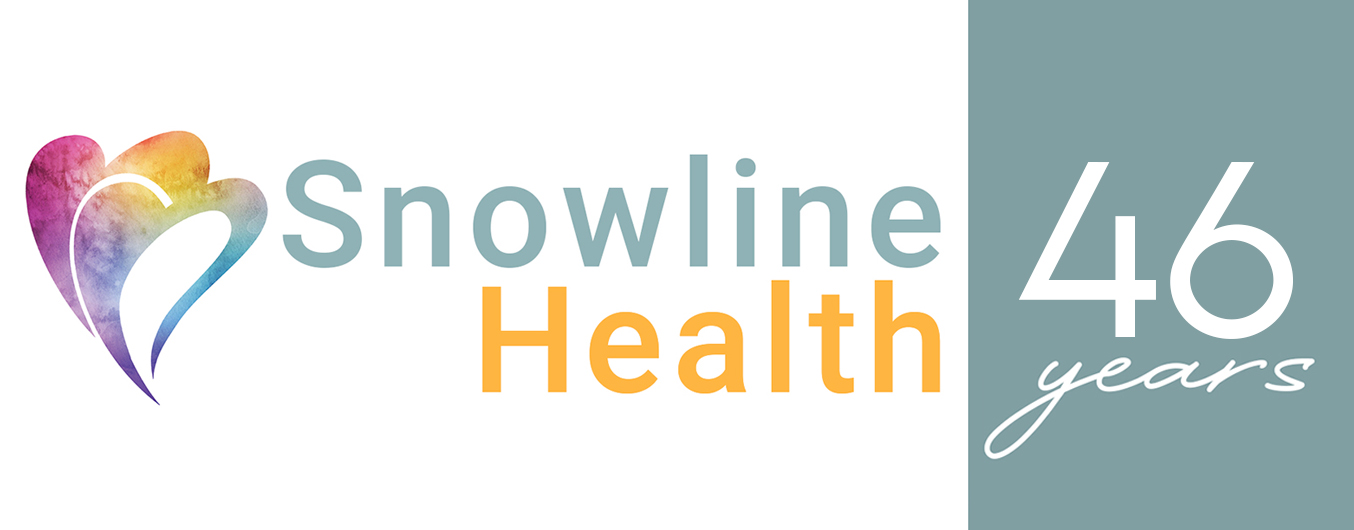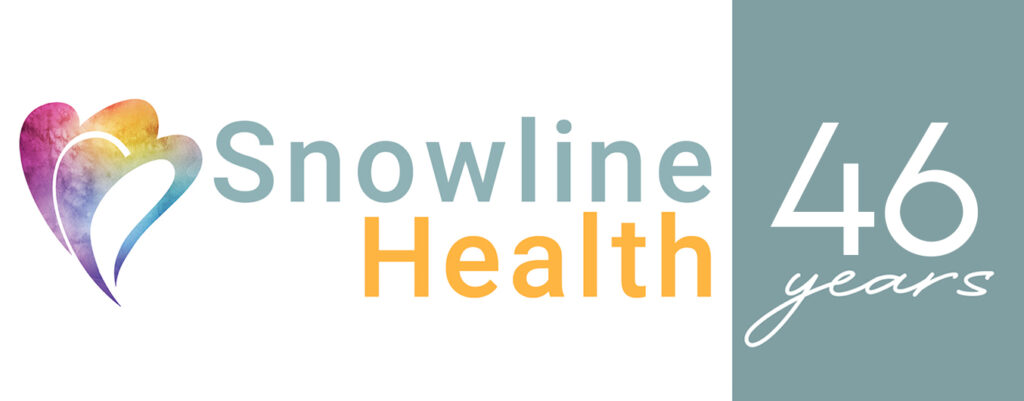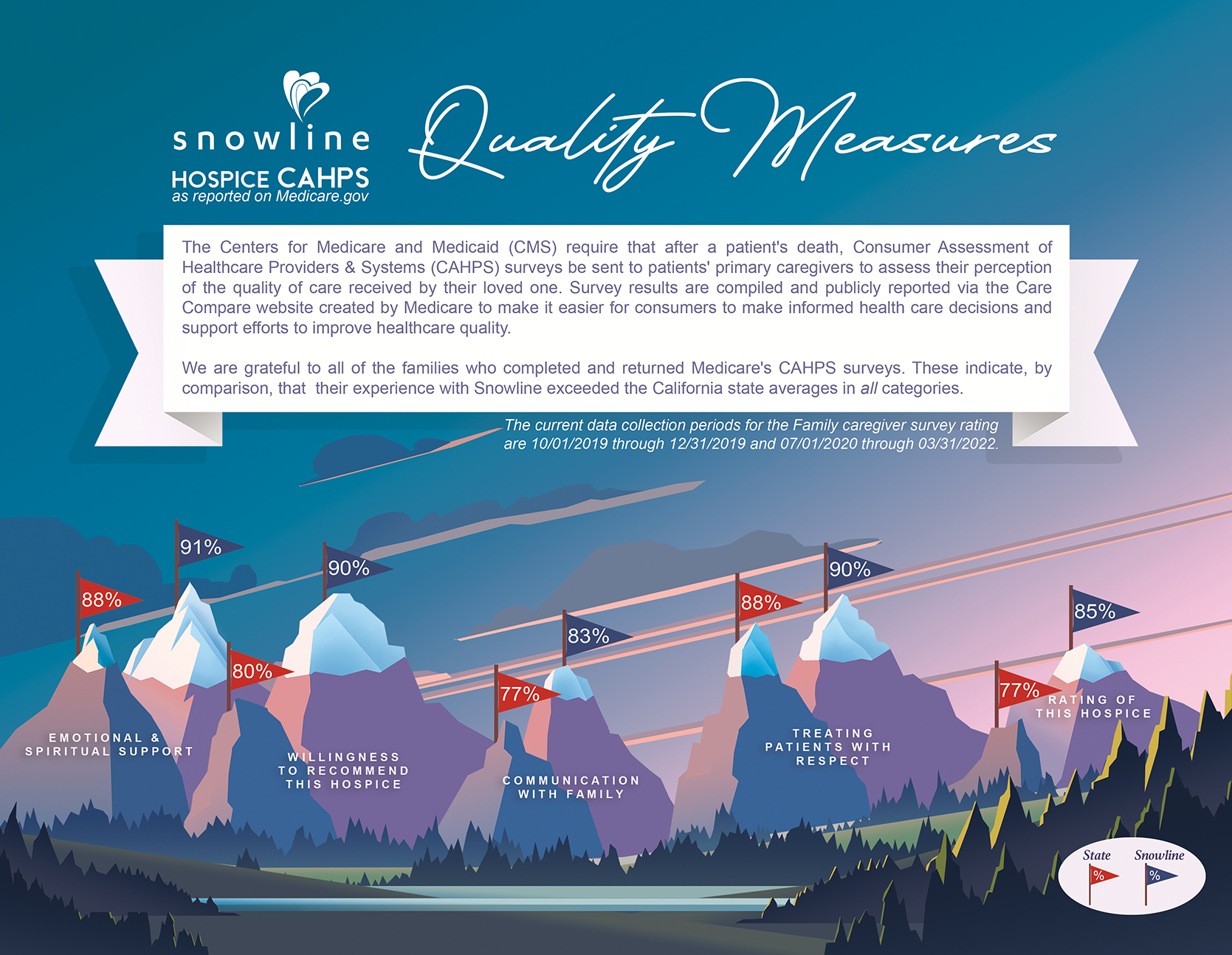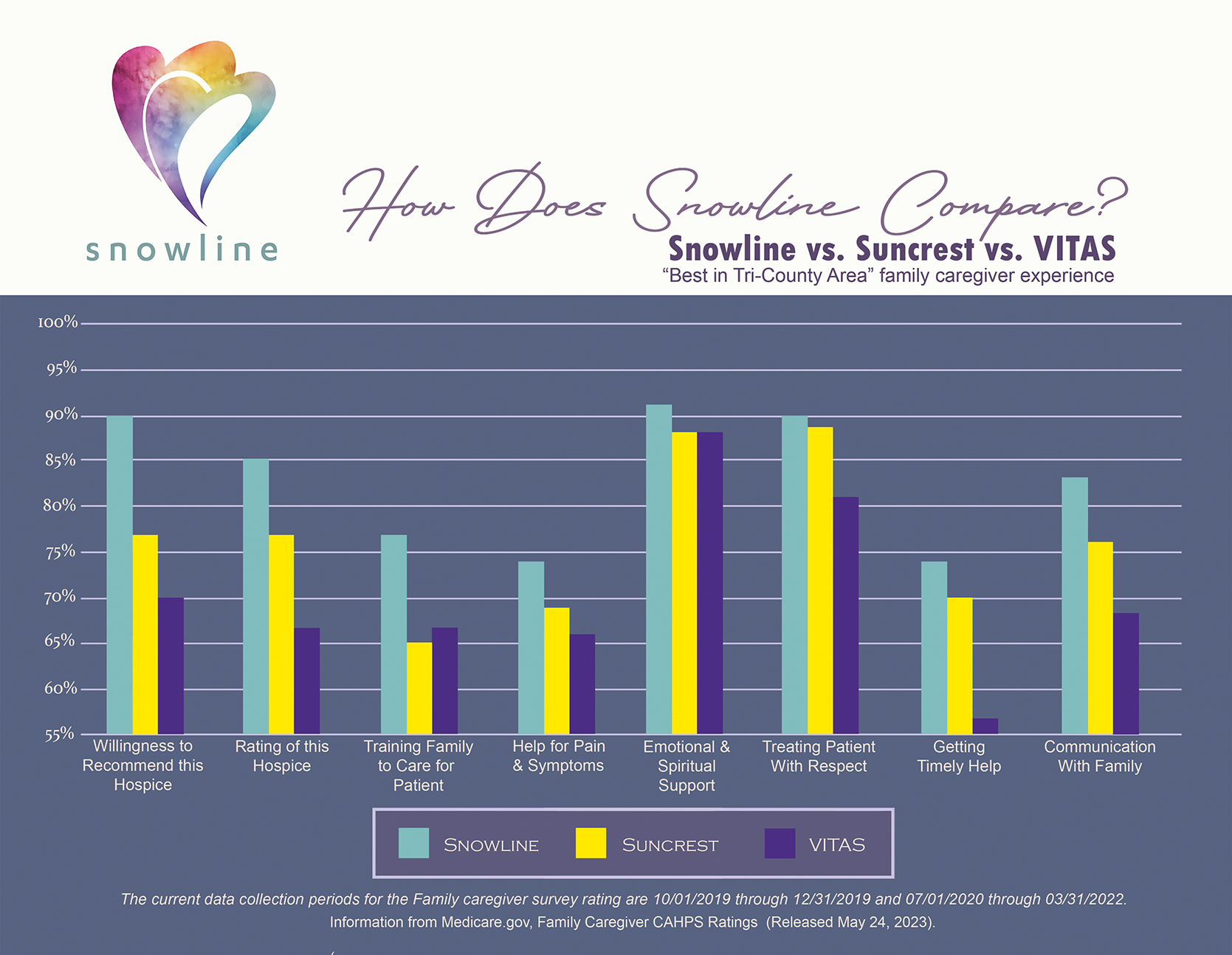Snowline’s Mission
To bring peace and dignity through life’s transitions by providing comfort, care, and support to people in need.
Snowline’s Vision
Outstanding people. Exceptional innovation. Expert care.
Snowline: Comfort, Dignity, and Compassion When It Matters Most
For more than 45 years, Snowline has been a trusted source of comfort and dignity for people facing serious illness or the end of life. Serving El Dorado, Sacramento, and Placer Counties, we are more than a nonprofit hospice; we are a community of healthcare professionals, volunteers, and neighbors committed to walking alongside patients and families through life’s most challenging moments.
Our mission is simple yet profound: to put people over profits and lead with compassion. We promise expert pain management, continuous support in times of crisis, and care that honors each person’s wishes, whether in Hospice Care, Palliative Care, ElderCare, or Grief Support. From specialized services for veterans to free grief support for the bereaved, our care extends far beyond medical needs- reaching hearts, easing burdens, and restoring peace.
Fueled by the generosity of our community and supported through our thrift stores and recycling centers, Snowline provides services that insurance and Medicare often do not cover, ensuring no one is turned away.
When the journey is hard, Snowline is here… to comfort, to guide, and to bring dignity every step of the way.
Why Choose Snowline?
Snowline Makes Choosing Hospice and Palliative Care Simple
The decision to focus on quality of life and select a care provider is deeply personal. While guidance from a doctor, hospital, or nursing home can help, Snowline’s compassionate approach, expert care, and patient-first principles make the choice clear and reassuring.
Joint Commission Accreditation
As a Joint Commission-accredited hospice, we are the partner of choice throughout the care continuum because of our deep abiding commitment to quality end-of-life care. Snowline is one of the few hospices in El Dorado, Sacramento, and Placer Counties with this distinct and honorable title. An accreditation from Joint Commission shows dedication to the optimum patient experience, commitment to strong interdisciplinary care management, and a robust patient safety initiative.
Founded in 1951, The Joint Commission is dedicated to continuously improving the safety and quality of the nation’s health care through voluntary accreditation. Snowline received the accreditation award after The Joint Commission found that it had demonstrated compliance with The Joint Commission’s national standards for home care organizations.
Joint Commission standards are the basis of an objective evaluation process that can help healthcare organizations measure, assess, and improve performance. The standards focus on important patient, individual, or resident care and organization functions essential to providing safe, high-quality care. The Joint Commission’s state-of-the-art standards set expectations for organization performance that are reasonable, achievable, and surveyable.
The Joint Commission
One Renaissance Blvd. Oakbrook Terrace, IL 60181 customerservice@jointcommission.org
Telephone: 630-792-5800
Standards Development Process
Joint Commission standards are developed with input from healthcare professionals, providers, subject matter experts, consumers, and government agencies (including the Centers for Medicare & Medicaid Services). They are informed by scientific literature and expert consensus and reviewed by the Board of Commissioners. New standards are added only if they relate to patient safety or quality of care, positively impact health outcomes, meet or surpass laws and regulations, and can be accurately and readily measured. The standards development process includes the following steps:
- Emerging quality and safety issues suggesting the need for additional or modified requirements are identified through the scientific literature or discussions with the Joint Commission’s standing committees and advisory groups, accredited organizations, professional associations, consumer groups, or others.
- The Joint Commission prepares draft standards using input from technical advisory panels, focus groups, experts, and other stakeholders.
- The draft standards are distributed nationally for review and made available for comment on the Standards Field Review page of the Joint Commission website.
- After any necessary revisions, standards are reviewed and approved by executive leadership.
- The survey process is enhanced, as needed, to address the new standards requirements, and pilot testing of the survey process is conducted.
- Surveyors are educated about how to assess compliance with the new standards.
- The approved standards are published for use by the field.
- Once a standard is in effect, ongoing feedback is sought for continuous improvement.




